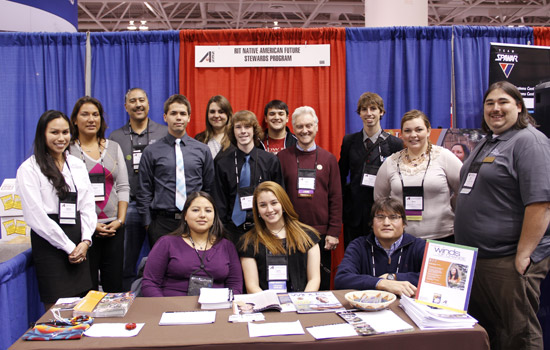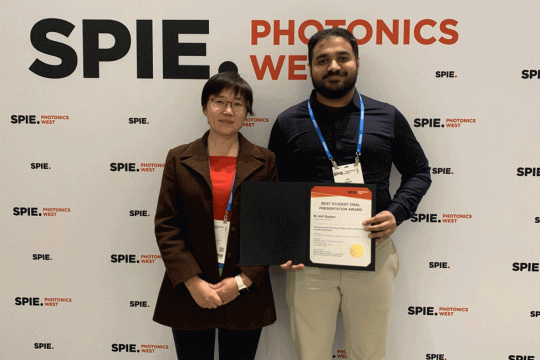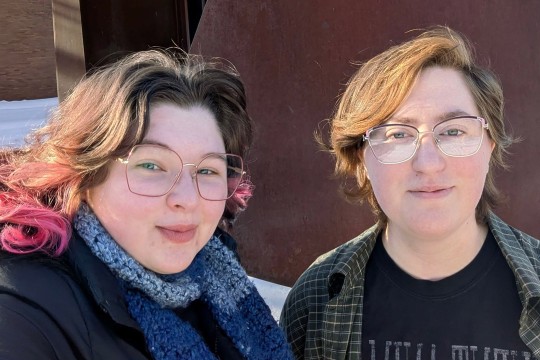University Receives Collegiate Science Technology Entry Program Grant
Award from New York State Department of Education will benefit under-represented students preparing for careers in science and technology
Submitted
Members of RIT’s CSTEP program participated at the American Indian Science and Engineering Society conference in November 2011. Standing from left: Nizhoni Chow-Garcia, Naomi Lee, Dr. Jason Younker, Tanner Newcomb, Jillian Strobeck, Jace Artichoker, Ben Parker, Dr. Roger Dube, Jared Umlas, Alicia Lazore, Dr. Jeffrey Burnette. Seated from left: Robyn Wilson, Caitlin Kavanaugh, Robert Jimerson.
Rochester Institute of Technology has received a Collegiate Science Technology Entry Program grant for $534,756 from the New York State Department of Education. The grant will be used to support undergraduate and graduate students from under-represented groups, particularly in the university’s African American, Latino American, and Native American populations.
The program, referred to as CSTEP, provides academic enrichment programming and research experiences for students pursuing careers in science, technology, engineering, and mathematics disciplines. It is administered by RIT’s Native American Future Stewards Program.
“A hallmark of RIT CSTEP is the academic and social support networks we provide for the program participants,” says Nizhoni Chow-Garcia, director of the program. “These services are intended to complement a student’s major degree program.”
Students can participate in a variety of programs throughout the academic year and summer including peer and faculty mentoring, tutoring, research placements and supervised training in research methods, support for graduate school preparation, and academic and career development.
“As a daughter of an immigrant family, I inevitably face challenges with limited guidance,” says Paula Garcia, a third-year industrial design student. “Many of my colleagues have a handful of family members who can assist them in the development of their academic and professional careers. The resources that CSTEP provides such as tutoring and GRE prep have given me the confidence to challenge myself. I encourage anyone who is eligible to apply.”
Additionally, many of the program participants are Native American students. While the group has become one of the fastest-growing affinity groups in the U.S., they are least likely to attend college. However, through CSTEP and the Future Stewards Program, this trend is changing, according to Chow-Garcia.
Caitlin Kavanaugh, a third-year mechanical engineering student agrees: “Through the Future Stewards Program and CSTEP I have had so many opportunities that I could never have dreamed of otherwise. From faculty mentoring to research and conference opportunities, CSTEP is like no other academic and professional support program on campus.”
The Future Stewards Program has grown from 32 students when it first began at RIT in 2008 to 136 students in 2011 with 40 newly enrolled Native American students enrolled this past fall. For the third year in a row, Winds of Change magazine, a quarterly magazine published by the American Indian Science and Engineering Society, named RIT a Top 200 College for Native Americans.













